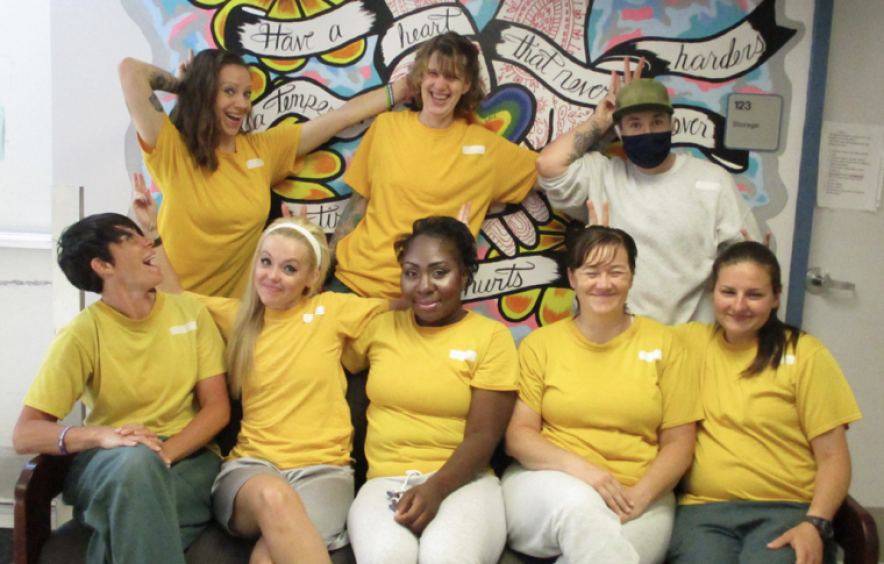Research
While arts programs have been a part of prison spaces for many years, there is limited empirical research that studies the impact of participation in arts programs for people who are incarcerated. Existing research focuses on singular workshops and small sample sizes, or addresses only one outcome at a time.
Our Research
The DU Prison Arts Initiative evaluates programming through interviews and surveys. In a recent pre- and post-evaluation with 123 participants, DU PAI used quantitative data to assess changes in participants' views of themselves and their communities.
Participants responded that at the end of the workshop period, they felt (1) more connected to the people in the workshop, (2) more like community members of DU PAI and their institution, (3) more like leaders in the facility, (4) more comfortable speaking in a group and (5) more like they affect people in positive ways than at the beginning of the DU PAI workshop.
Participants expanded on these results through qualitative responses, explaining they now feel "more connected with themselves and the group" and have gained "a sense of safety and openness with others" as well as "a sense of accomplishment." Participants also reflected on how people interacted with each other, reporting "more healthy expression of conflict and differences in opinion" alongside "more authenticity and vulnerability."

2021–2022 DU PAI Art-Based Courses Evaluation Summary
Over the 2021–2022 program year, 10 different arts-based courses were facilitated at 11 different facilities throughout the Colorado Department of Corrections across two program periods (Fall, Winter/Spring), some of which were offered more than once, totaling 19 courses. These courses ranged across artistic disciplines of theatre, visual art, journalism, movement/dance, creative writing, improvisation and more.
Download the report to learn more about our 2021–2022 Arts-Based Course Evaluations!
Download the Report
"Closer to the Problem: Can a Virtual Prison Arts Event Foster Psychological Proximity to the Issue of Incarceration?"
Prisons are physically separated from society. As a result, the public has little contact with incarcerated people, and few avenues for understanding their lived experiences. A team of DU PAI researchers—Danielle Littman, PhD student in social work; Shannon Sliva, PhD; and Jeffrey Linn, PhD—explored the implications of this separation. Drawing upon construal level theory—the idea that the more concrete something becomes, the more psychological proximity we perceive—they consider whether attending a virtual prison arts event may foster psychological proximity to incarcerated individuals and issues of incarceration among the general public.

"'The walls came down': A Mixed-Methods Multi-Site Prison Arts Program Evaluation"
DU PAI's research assistant, Danielle Maude Littman, and director of research, Shannon Sliva, published “'The walls came down': A Mixed-Methods Multi-Site Prison Arts Program Evaluation" in the Justice Evaluation Journal. Through open-ended survey responses, participants reflected that their experiences in DU PAI programs in comparison to other programs and places at their institution left them feeling more connected with themselves and the group, safer with others, more open with others, and feeling an increased sense of accomplishment. In reflecting how people interacted in the DU PAI program in comparison to other programs or places at their institution, participants reported more healthy expression of conflict and differences in opinion, alongside more authenticity and vulnerability.

